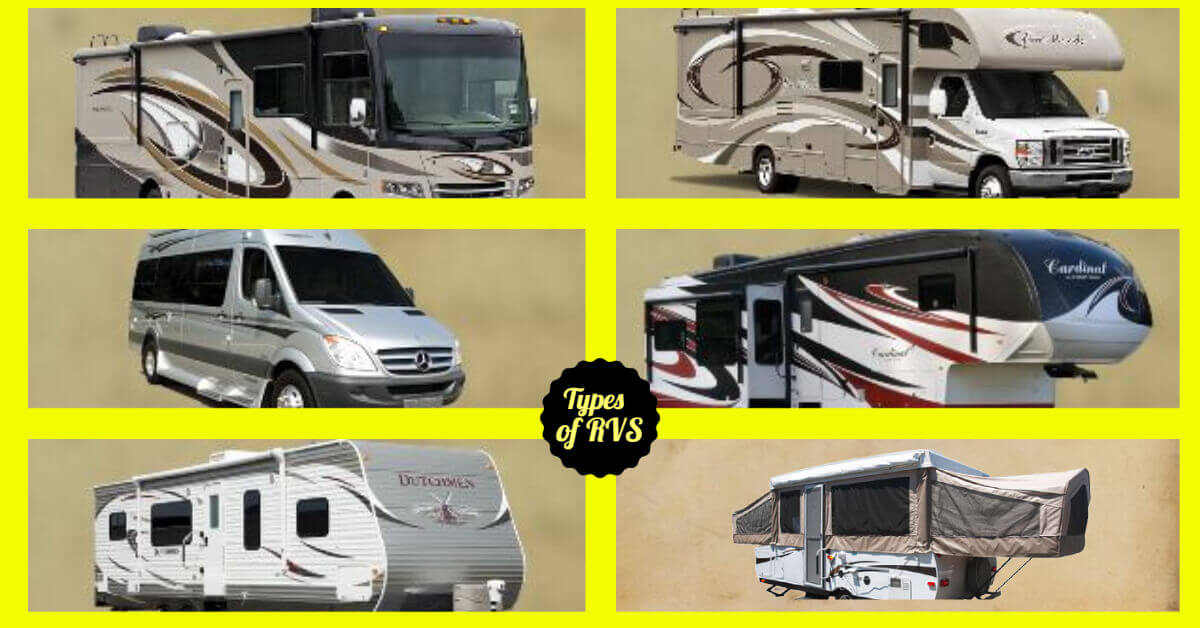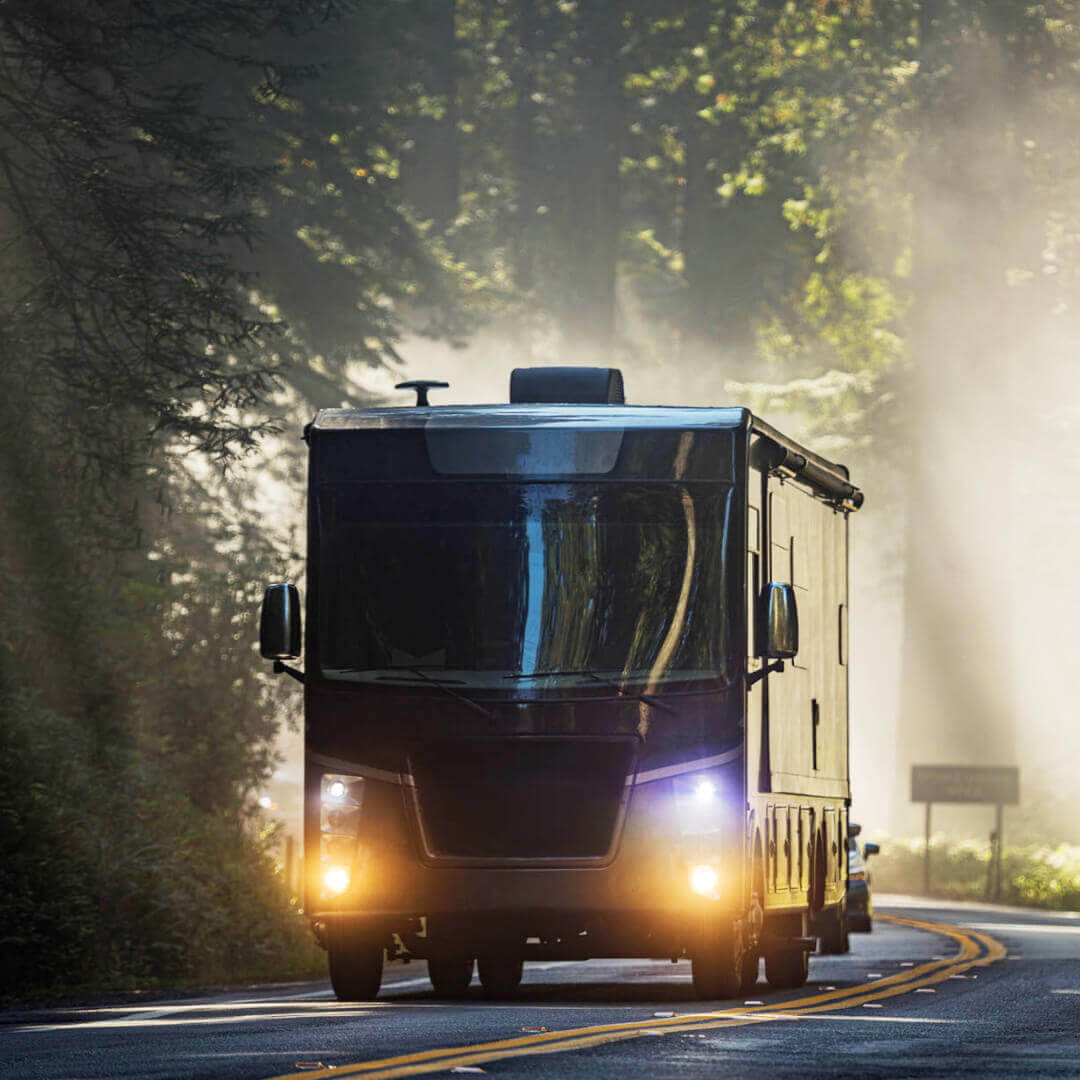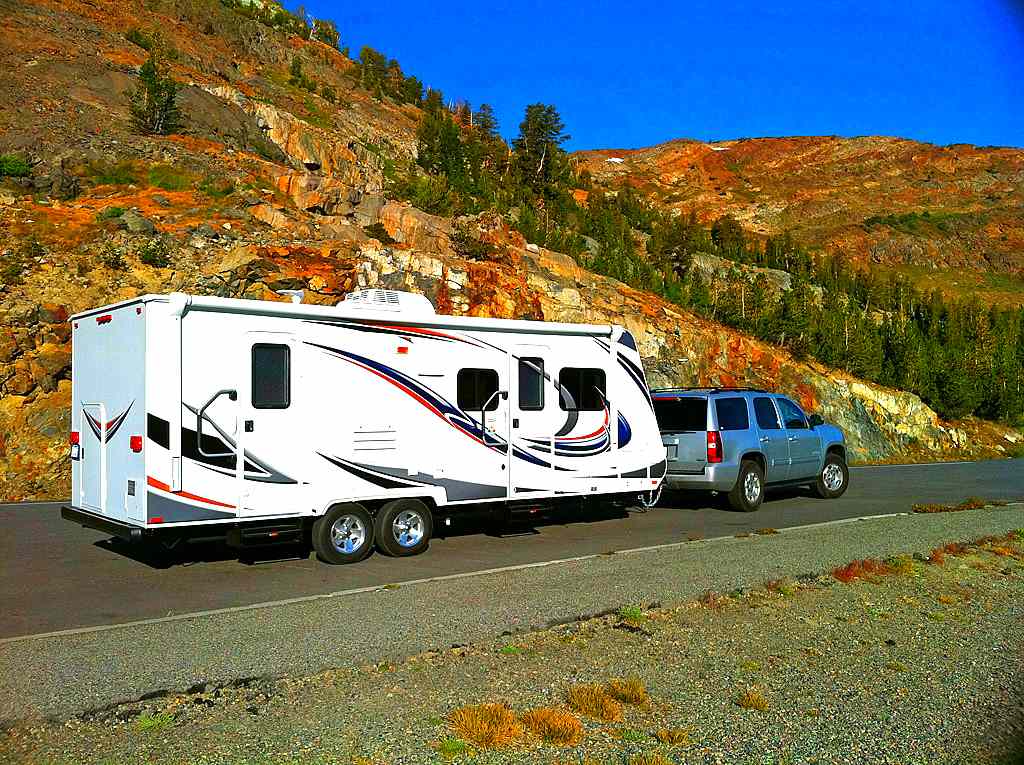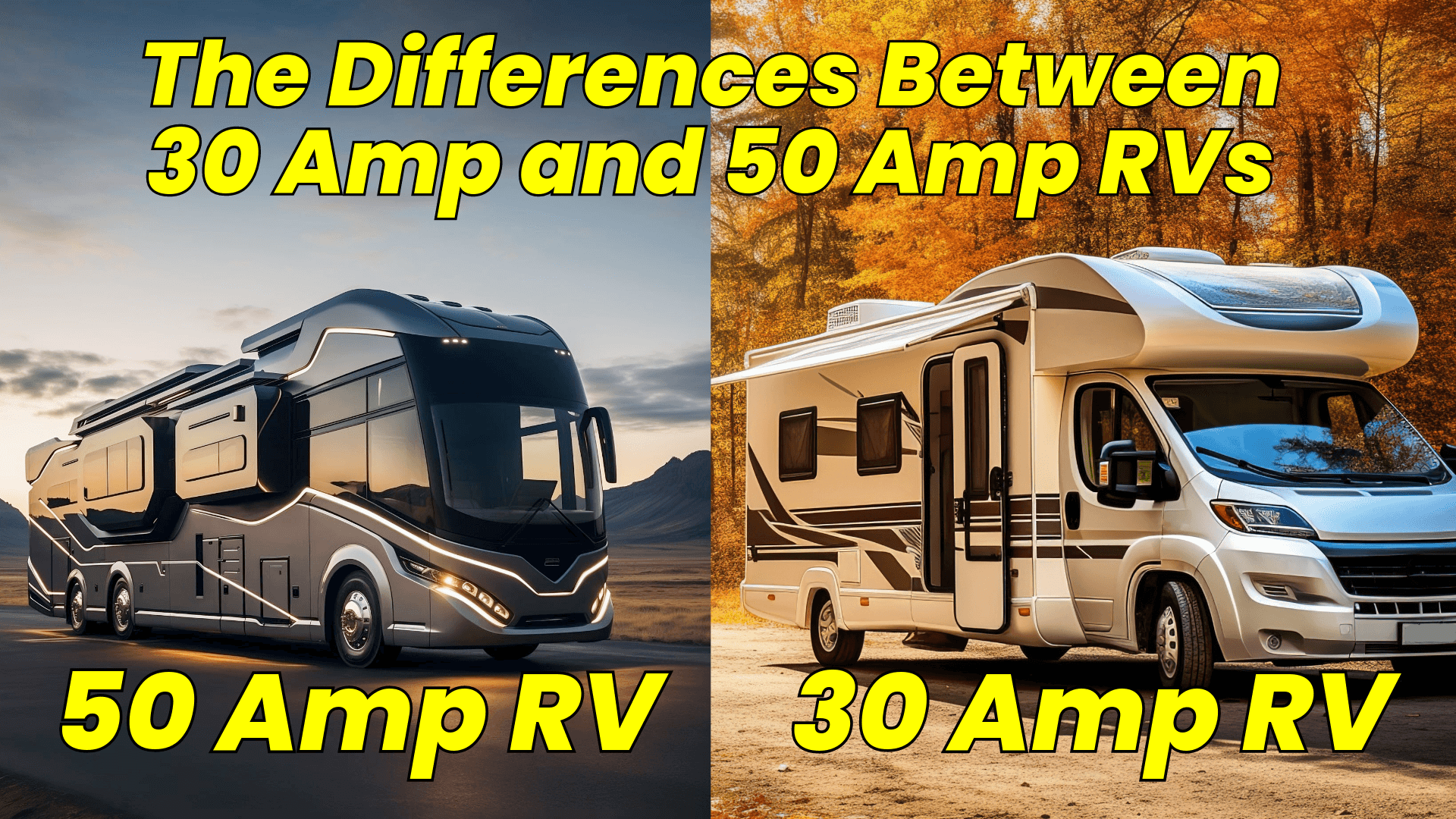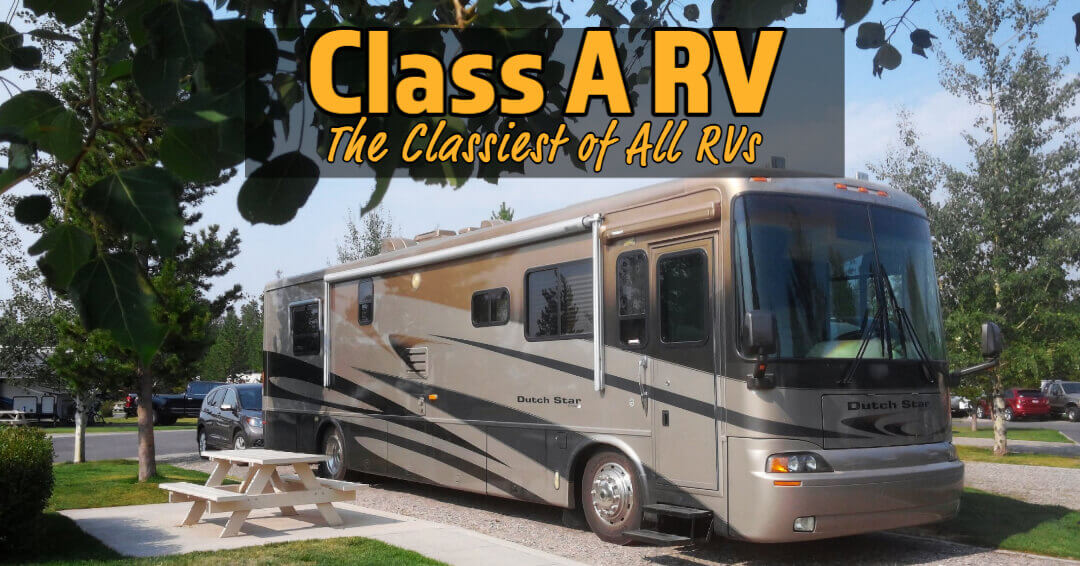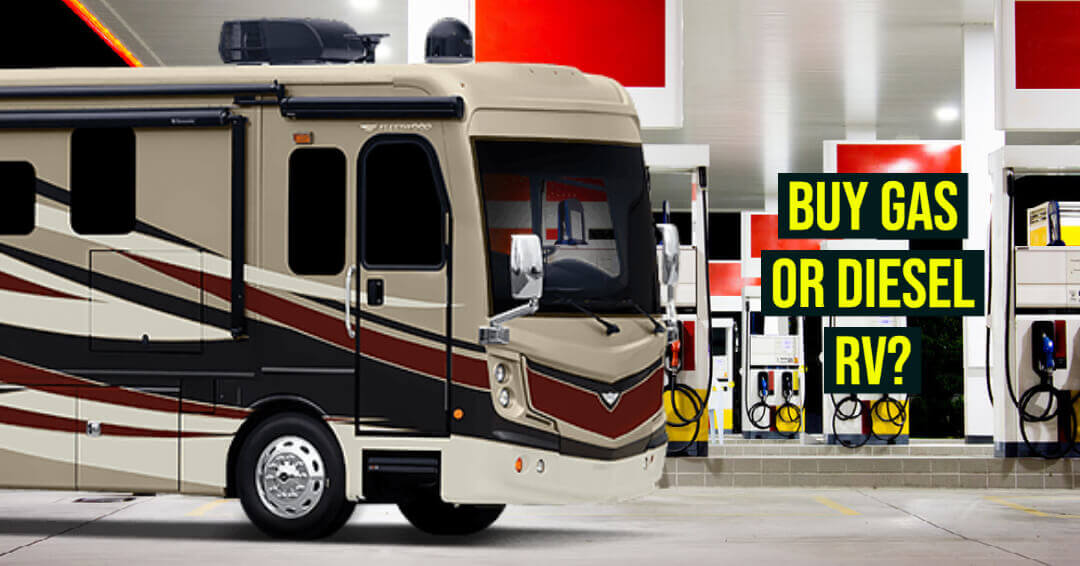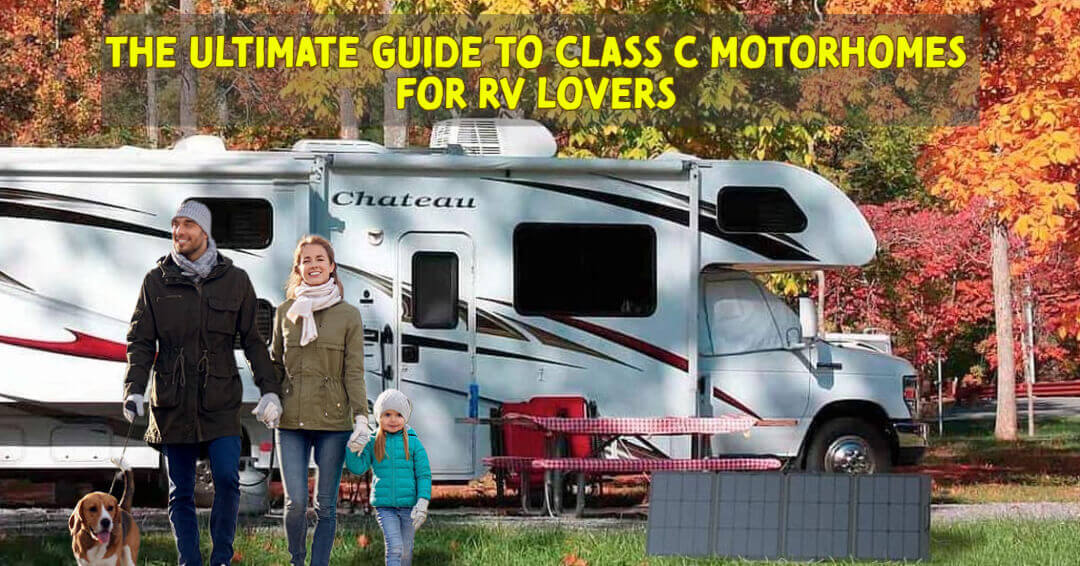- Home Page
- The Types of RVs
Types of RVs Available
There are many types of RVs available that you can choose from. Which one is right for you
Introduction
Recreational vehicles (RVs) offer a unique blend of comfort and adventure, providing a home away from home while enabling travelers to explore the vast and varied landscapes at their own pace. As the interest in road trips and outdoor vacations continues to grow, understanding the different types of RVs available becomes essential for both seasoned adventurers and first-time buyers. In this article, we delve into the diverse world of RVs, examining each category's distinct features and capabilities. From the compact convenience of camper vans to the luxurious expanses of motorhomes, and the versatile appeal of travel trailers, we will guide you through the various options, helping you find the perfect match for your travel style and needs. Whether you're planning a cross-country journey or a weekend getaway, this comprehensive overview of RV types promises to equip you with the knowledge needed to make an informed decision in your quest for the ultimate road experience.
Here is what you need to know about the different RV types.
RVs Are Divided into Two Main Categories
Motorized
Have a motor, that's why they are called Motorhomes or Motor Homes. This category includes the following classes of RVs:
Class A
A Class A motorhome is a type of recreational vehicle (RV) that is typically the largest and most luxurious of motorhome classes. Resembling a bus in shape and size, Class A motorhomes are built on a specially designed motor vehicle chassis and are known for their spacious and well-appointed interiors.
Key features of a Class A motorhome include:
1. Size and Space: They usually range from about 25 to 45 feet in length, offering ample living space, which often includes a living area, a full kitchen, a bathroom, and one or more bedrooms.
2. Amenities: High-end models can be equipped with amenities like full-size refrigerators, washers and dryers, multiple TVs, and even fireplaces.
3. Sleeping Capacity: Depending on the layout, they can typically sleep anywhere from 2 to 8 people, making them ideal for families or groups.
4. Slide-outs: Many have slide-out sections that can be extended when the vehicle is parked to increase the living space.
5. Driving and Handling: They offer a higher driving position compared to other RV types. However, due to their size, they can be more challenging to maneuver, especially in tight spaces.
6. Storage: They often have significant storage capacity, with large compartments accessible from the outside.
7. Power and Utilities: Equipped with large water tanks and generators, they are well-suited for extended travel and can support various utilities and electrical appliances.
Class A motorhomes are popular among those who prefer a luxurious travel experience or plan to live in their RV for extended periods. However, they are also the most expensive type of motorhome, both in terms of initial cost and ongoing maintenance and fuel expenses.
Class B

A Class B motorhome, often referred to as a camper van, is the smallest type of recreational vehicle (RV) in the motorhome family. Built on a van chassis, these motorhomes are more compact and easier to drive than their larger counterparts, making them a popular choice for solo travelers, couples, or small families.
Key features of a Class B motorhome include:
1. Compact Size: Typically ranging from 16 to 22 feet in length, Class B motorhomes are much easier to maneuver and can fit in standard parking spots. Their size makes them ideal for both urban exploration and outdoor adventures.
2. Living Space: The interior is efficiently designed to maximize space, often featuring a small kitchenette, a living/sleeping area, and a compact bathroom. The sleeping area may double as a seating area during the day.
3. Amenities: Despite their size, they often include necessary amenities like a refrigerator, stove, microwave, and sometimes a small shower and toilet. However, the amenities are more compact compared to larger RVs.
4. Fuel Efficiency: Class B motorhomes are generally more fuel-efficient than Class A or Class C motorhomes due to their smaller size and lighter weight.
5. Versatility: Their size and agility allow for a broader range of camping options, including more remote or restricted sites where larger RVs might not fit.
6. Storage: Storage space is limited due to the compact nature of the vehicle, making them more suitable for shorter trips or minimalistic living.
7. Cost: While less expensive than Class A motorhomes, Class B vehicles can still be quite pricey due to their sophisticated and compact design.
Class B motorhomes are a great choice for those looking for a more nimble and economical RV experience, especially for those who prioritize ease of driving and parking over spacious living accommodations.
Class C
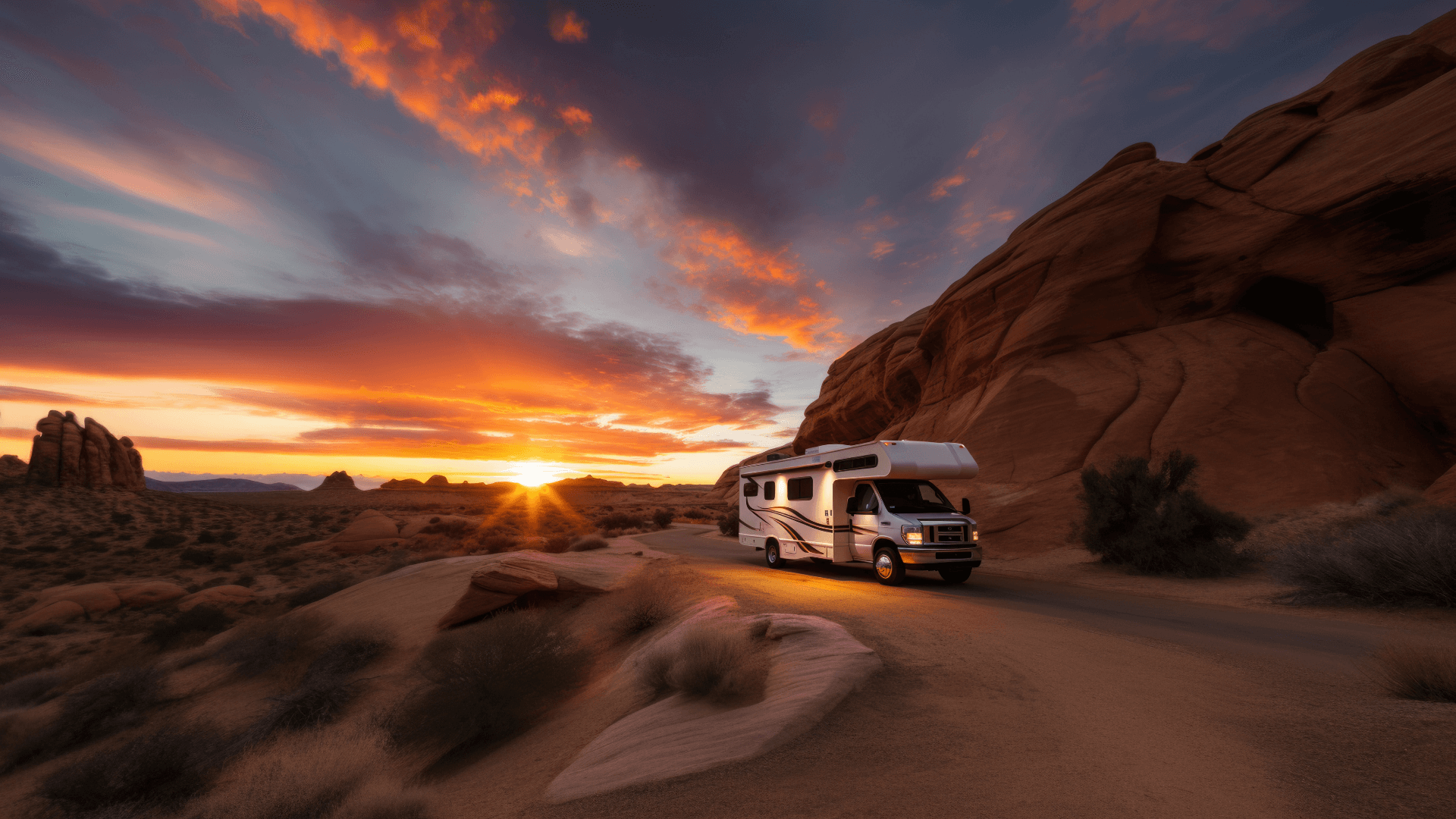
A Class C motorhome is a type of recreational vehicle (RV) that strikes a balance between the large Class A and the smaller Class B motorhomes. Built on a truck or van chassis with an attached cab section, Class C motorhomes are recognizable by their distinctive over-cab sleeping or storage area.
1. Size: Typically ranging from 20 to 33 feet in length, Class C motorhomes are larger than Class B but more compact and easier to handle than Class A motorhomes.
2. Sleeping Capacity: The over-cab area often serves as an extra sleeping space, making these vehicles a popular choice for families. They generally sleep 4 to 8 people, depending on the layout.
3. Amenities: They usually come equipped with a kitchen, bathroom, and living space, offering a comfortable level of amenities without the luxury scale of Class A motorhomes. Some models also feature slide-outs to increase living space when parked.
4. Maneuverability: While larger than Class B, Class C motorhomes are generally easier to drive than Class A, making them a good middle-ground option for those who are concerned about driving and maneuvering a large vehicle.
5. Storage: They provide more storage space than Class B motorhomes, both internally and in external compartments.
6. Versatility: Class C motorhomes are versatile in terms of where they can travel. They are well-suited for both short trips and longer vacations, and their size allows them to fit into most campgrounds and RV parks.Cost: Typically, they are less expensive than Class A motorhomes but can be more expensive than Class B models, offering a middle-ground option in terms of price.
Class C motorhomes are ideal for those who need more space and amenities than a Class B offers but prefer something smaller and less expensive than a Class A. They are particularly popular among families and those looking for a balance between comfort and ease of handling.
Non-Motorized
Don't have a motor. This category includes the following type of RVs:
Fifth Wheel Trailer
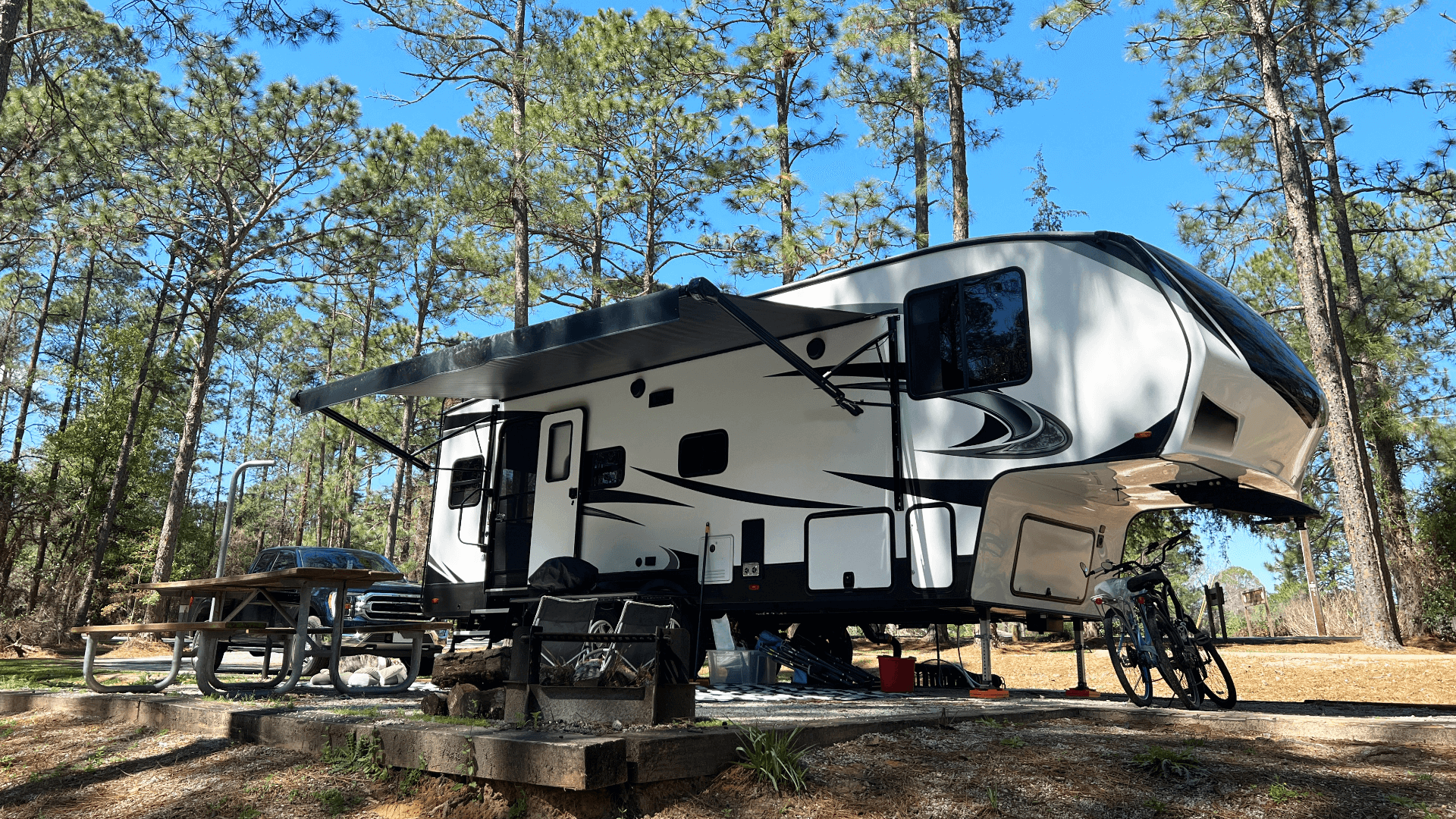
A fifth-wheel trailer is a type of recreational vehicle (RV) that is towed by a pickup truck using a special hitch in the bed of the truck. This design offers distinct advantages in stability and towing ease compared to traditional travel trailers. Fifth-wheel trailers are popular among those who frequently travel or enjoy extended stays in their RV.
Key features of a fifth-wheel trailer include:
1. Design and Hitching: The fifth-wheel hitch provides enhanced stability and maneuverability, making it easier to tow than a traditional trailer. This hitching system pivots at the point where it connects to the truck, allowing for smoother turns.
2. Size: These trailers can range from about 22 feet to over 40 feet in length. This size range offers a variety of layouts and accommodations to suit different needs.
3. Living Space: Fifth-wheel trailers are known for their spacious interiors, often featuring multiple slide-outs to expand living areas. They typically include full kitchens, bathrooms, living areas, and separate bedrooms. Some larger models have luxurious amenities like king-size beds, washers and dryers, and even fireplaces.
4. Storage: They offer ample storage space, both inside and in external compartments, making them suitable for long trips and full-time living.
5. Towing Vehicle Requirements: Due to their size and weight, fifth-wheel trailers require a pickup truck with sufficient towing capacity. The choice of truck is crucial for safe and efficient towing.
6. Versatility in Use: While they offer ample living space and comfort, their size might limit the choice of campgrounds and maneuverability in tighter spaces.
7. Cost: In general, fifth-wheel trailers can range from moderately priced to quite expensive, depending on the size and amenities offered.
Fifth-wheel trailers are an excellent choice for those who already own or are willing to invest in a capable pickup truck and desire a spacious and comfortable RV experience. They are particularly favored by seasonal travelers, full-time RVers, and those who enjoy extended stays in one location.
Travel Trailer
The Travel Trailer is the middle child of the towable RV class and is extremely popular among RVers. It is smaller and lighter than a Fifth Wheel Trailer, which means it can be towed by a mid-sized car, van or pickup truck (this could mean using a lot less fuel to get where you are going).
A travel trailer, also known as a caravan in some countries, is a popular type of towable recreational vehicle (RV) that comes in various sizes and layouts to suit a wide range of travelers and their needs. Unlike motorhomes, travel trailers are towed behind a vehicle, typically a car, SUV, or pickup truck, using a traditional hitch.
Key features of a travel trailer include:
1. Diverse Sizes and Styles: Travel trailers range from small, lightweight models that can be towed by smaller vehicles, to larger, more luxurious versions requiring a more powerful towing vehicle.
2. Living Amenities: Most travel trailers are equipped with living necessities such as a kitchen, sleeping areas, a bathroom, and a dining or living space. Larger models may have slide-outs to expand the living space.
3. Cost-Effectiveness: Generally, travel trailers are more affordable than motorized RVs, both in initial purchase price and ongoing maintenance costs.
4. Versatility in Use: Their varied sizes make them suitable for a wide range of uses, from short weekend trips to extended vacations. Smaller models are particularly popular for their ease of towing and ability to access more remote or smaller campsites.
5. Storage Space: They typically offer good storage options, both inside and in external compartments, though this varies with size.
6. Tow Vehicle: The need for a separate towing vehicle can be both an advantage and a disadvantage. It allows the trailer to be unhitched upon arrival at a destination, freeing up the vehicle for other use. However, it also requires the owner to have a vehicle with adequate towing capacity.
7. Ease of Driving: Towing a travel trailer requires some skill, particularly in maneuvering and reversing. The driving experience varies significantly depending on the trailer's size and weight.
Travel trailers are a popular choice for their flexibility, affordability, and the convenience of being able to detach the trailer and use the towing vehicle independently. They cater to a wide range of camping enthusiasts, from solo travelers to large families
Tent Trailer
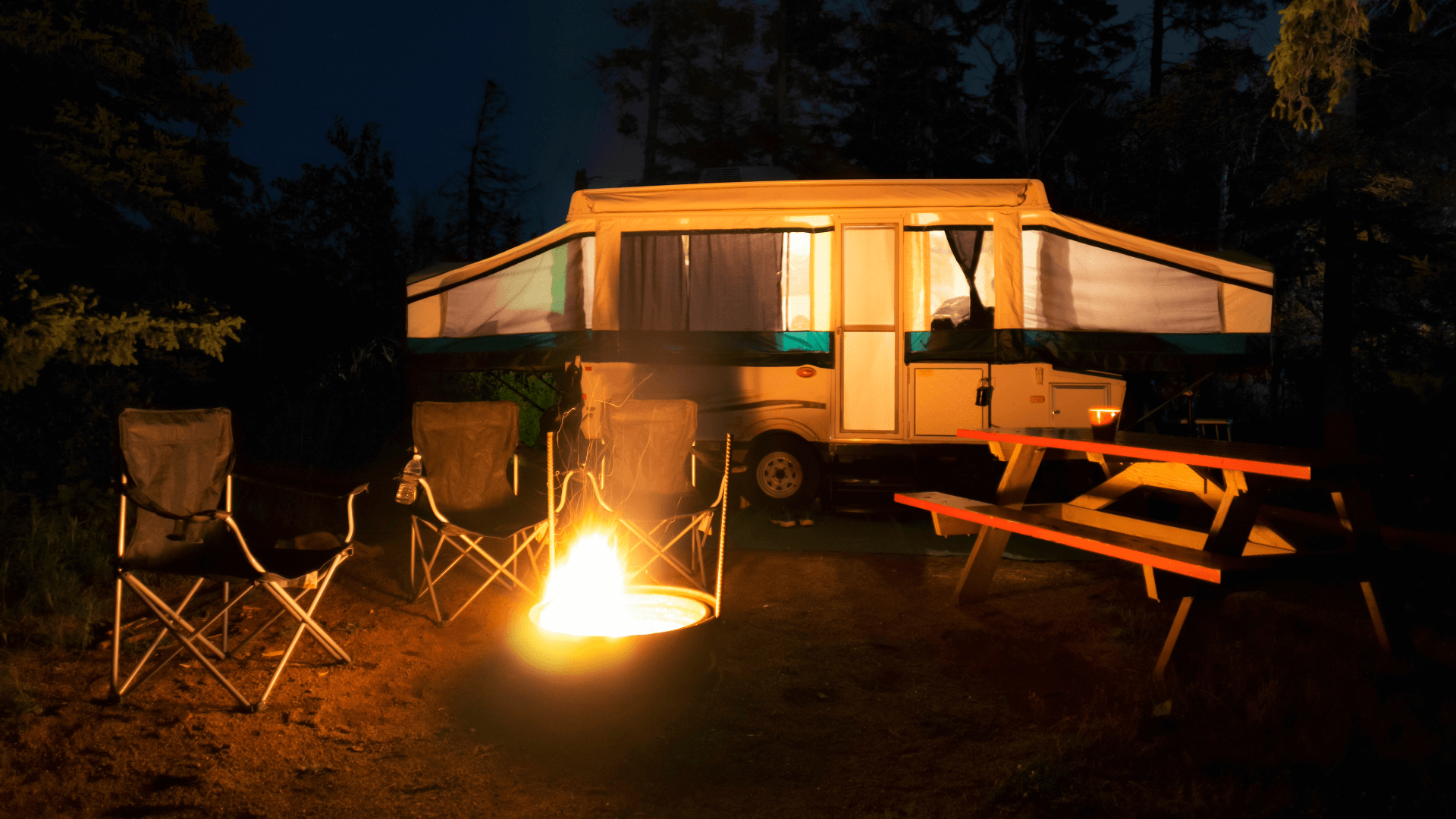
A tent trailer, also known as a pop-up camper or folding trailer, is a type of towable recreational vehicle (RV) that combines the experience of tent camping with some comforts of a traditional RV. These trailers are known for their lightweight and compact design, which makes them easily towable by most vehicles, including cars and small SUVs.
Key features of a tent trailer include:
1. Compact and Lightweight: When collapsed, tent trailers are compact and relatively easy to tow and maneuver. This compactness also makes them easy to store when not in use.
2. Expandable Design: The trailer expands and unfolds, often with pull-out beds on either end and a raiseable roof, significantly increasing the living space. This design provides a more authentic camping experience, similar to a tent, but off the ground and with more protection.
3. Basic Amenities: Inside, they typically include sleeping areas, a small kitchenette with a stove and fridge, and sometimes a dining area. Some models may include a basic toilet or even a shower, but these are less common.
4. Affordability: Tent trailers are generally the most affordable type of RV, making them an attractive option for those new to RVing or with a limited budget.
5. Ease of Towing: Their lightweight nature means they can be towed by smaller vehicles, which is a significant advantage for those who do not own a large truck or SUV.
6. Setup and Takedown Time: Setting up and taking down a tent trailer takes more time and effort compared to other types of RVs, as it involves unfolding and setting up the tent sections.
7. Exposure to Elements: While more protective than a ground tent, they are still more exposed to the elements and temperature variations due to the canvas or fabric sides.
Tent trailers are ideal for those who enjoy the tent camping experience but wish to upgrade to something more comfortable and off the ground, without the investment or towing challenges of larger RVs. They are particularly popular among families and those who prefer a more authentic camping experience with some added conveniences.
Truck Camper
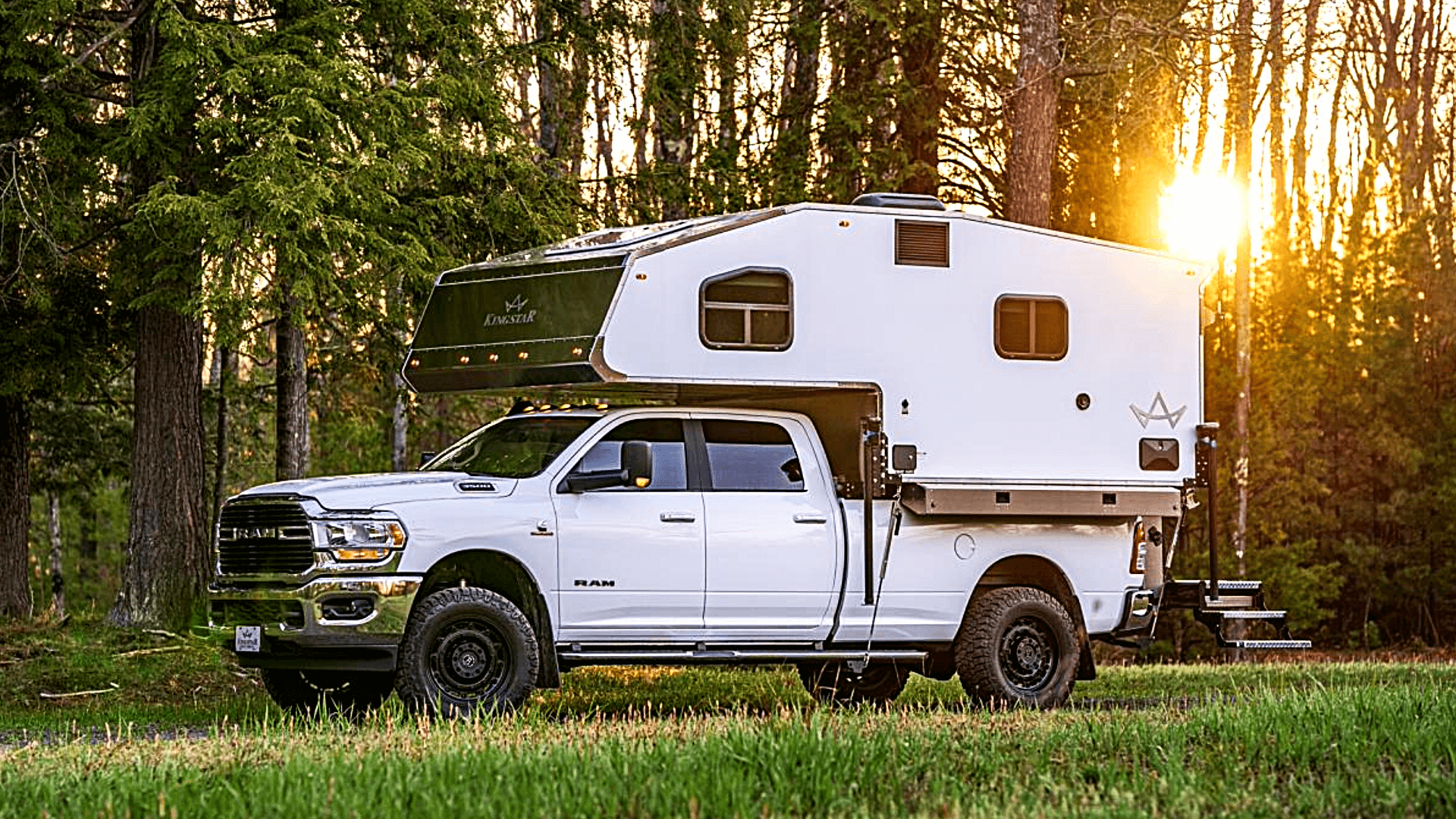
A truck camper is a type of recreational vehicle (RV) that is carried in the bed of a pickup truck. This unique design makes it a versatile and easily maneuverable option for camping and travel. Truck campers are a popular choice for adventurers who want the mobility of a vehicle combined with the comforts of an RV.
Key features of a truck camper include:
1. Compact and Efficient: Designed to fit onto the back of a pickup truck, truck campers are compact and efficient in design. They utilize vertical space to provide living amenities without extending the length of the vehicle significantly.
2. Amenities: Despite their small size, many truck campers are well-equipped with features such as a sleeping area, kitchenette, dining space, and sometimes even a small bathroom with a toilet and shower.
3. Mobility and Versatility: The ability to go almost anywhere a truck can go makes them highly versatile. They are ideal for exploring remote areas that might be inaccessible to larger RVs.
4. Easy to Detach: The camper can be unloaded and left at a campsite, freeing the truck for other uses. This flexibility is a significant advantage over traditional RVs.
5. Various Sizes and Fits: They come in different sizes to fit various truck bed lengths and capacities. It's essential to match the camper to the truck's hauling capacity for safe and effective use.
6. Seasonal Use: Many truck campers are equipped for year-round use, with insulation and heating systems that make them suitable for camping in a range of climates.
7. Cost-Effectiveness: Generally, truck campers are more affordable than most motorized RVs and larger towable RVs. They also save on fuel costs due to their relatively small size and efficient design.
Truck campers are ideal for individuals or couples who enjoy outdoor adventures and want the convenience of an RV without the size and expense of larger models. They offer a unique blend of convenience, comfort, and accessibility, making them a great choice for both short getaways and extended travel.
Even the Types of RVs categories above have sub-categories within them. Look at the separate RV class pages to get a listing of those.
FAQ
What distinguishes a Class A motorhome from other RV classes in terms of size and amenities?
What distinguishes a Class A motorhome from other RV classes in terms of size and amenities?
Class A motorhomes are typically the largest and most luxurious in the RV category, ranging from 25 to 45 feet. They offer ample living space, including a full kitchen, bathroom, and bedrooms, with high-end models featuring amenities like full-size refrigerators, washers, dryers, and multiple TVs.
How does the driving and handling of a Class B motorhome compare to other RV types?
How does the driving and handling of a Class B motorhome compare to other RV types?
Class B motorhomes, built on a van chassis, are more compact and easier to drive than larger RVs. Their size, typically 16 to 22 feet, allows them to fit in standard parking spots and navigate urban areas, making them ideal for solo travelers and small families.
What are the key features of a Class C motorhome, and who might find it most suitable?
What are the key features of a Class C motorhome, and who might find it most suitable?
Class C motorhomes, ranging from 20 to 33 feet, offer a balance between space and maneuverability. They are easier to drive than Class A but more spacious than Class B, with features like over-cab sleeping space, a kitchen, bathroom, and living area. They are popular among families and those seeking a middle-ground option.
What are the advantages of a fifth-wheel trailer, and what are its towing requirements?
What are the advantages of a fifth-wheel trailer, and what are its towing requirements?
Fifth-wheel trailers offer enhanced stability and ease of towing due to their special hitch design. They range from 22 to over 40 feet, providing spacious interiors with amenities like full kitchens and bathrooms. They require a pickup truck with adequate towing capacity for safe transportation.
How do tent trailers differ from other types of RVs, and who are they best suited for?
How do tent trailers differ from other types of RVs, and who are they best suited for?
Tent trailers are compact, lightweight, and combine tent camping with RV comforts. They are easily towable by most vehicles and expand to provide more living space. Best suited for those who enjoy tent camping but seek more comfort, they are an affordable option for new RVers or those on a budget.
Conclusion
In conclusion, exploring the various types of RVs available is an enlightening journey for both seasoned adventurers and those new to the world of recreational vehicles. From the compact and efficient Class B campervans, ideal for solo travelers or couples, to the luxurious and spacious Class A motorhomes, perfect for long-term travel or full-time living, there is an RV to suit every need and preference. The versatility of travel trailers and fifth wheels offers a customizable experience, allowing travelers to choose the perfect balance of comfort and mobility. Meanwhile, pop-up campers and truck campers present unique solutions for those seeking a more rugged and off-the-beaten-path adventure. Understanding the different types of RVs available empowers potential buyers and renters to make informed decisions, ensuring their travel experiences are both enjoyable and tailored to their specific desires. Ultimately, the world of RVs is as diverse as the landscapes they traverse, offering endless possibilities for exploration, freedom, and creating lasting memories on the open road.
Helpful Tools
Here are some Questions you need to ask yourself before deciding which type of RV you should consider.
Are you even capable of choosing an RV? Take the exclusive Everything-About-RVing.com RV Buffet Personality Profile Evaluation And see.
Hopefully, the above information will be helpful in steering you in the right direction. Once you have decided what the right type of RV is for you, you should head over to the Buying a RV section of this web site to get some more helpful hints.
FAQ
TYPES OF RVS AVAILABLE
What are the main categories of RVs available?
What are the main categories of RVs available?
RVs are divided into two main categories: motorized and non-motorized.
What is a Class A motorhome?
What is a Class A motorhome?
A Class A motorhome is a large, luxurious RV that is built on a bus chassis. It is equipped with a motor and is often referred to as a "motorhome" or "motor home".
What is a Class B RV?
What is a Class B RV?
A Class B RV is a standard van that has been converted into a small RV. It is also known as a Van Conversion, Camper Van, or Touring Coach and typically ranges in length from 15 to 20 feet.
What is a Fifth Wheel Trailer?
What is a Fifth Wheel Trailer?
A Fifth Wheel Trailer is a towable RV that has the most available living space of any RV. It is also known as the "Fiver" and is the most popular of the towable trailers category.
What is a Truck Camper?
What is a Truck Camper?
A Truck Camper is a small, lightweight RV that is designed to be mounted on the back of a truck. It allows for mobility and the ability to access places that other RVs cannot.
Return to the Everything About RVing Homepage from the Types Of RVs page
